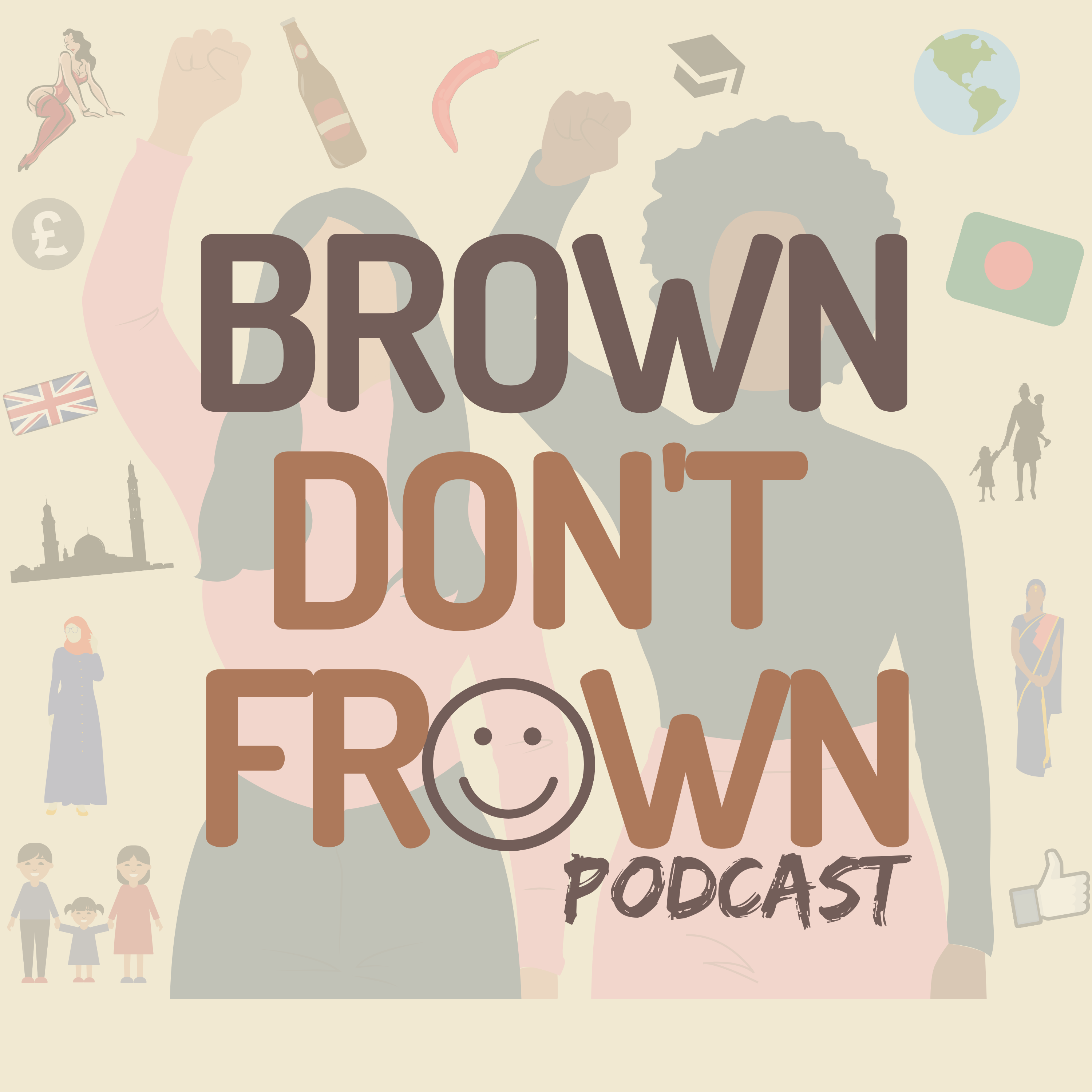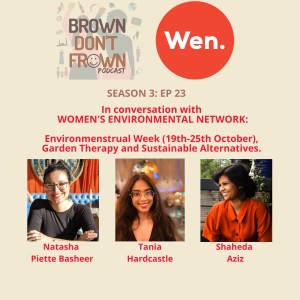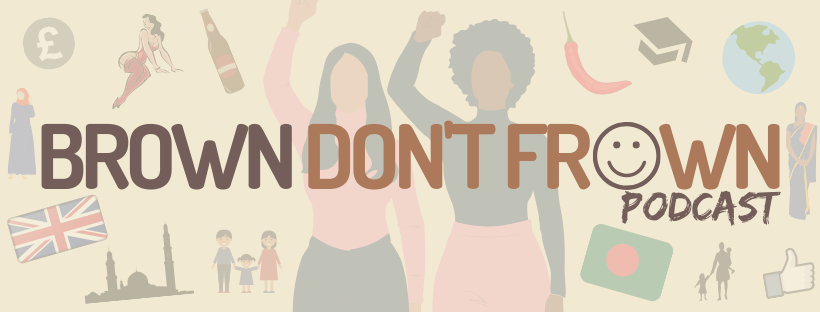
Brown Don't Frown was borne out of a personal journey with womanhood. As a British Bangladeshi, navigating mainstream Feminism often felt exclusionary to me because it didn’t seem to value the experiences or views which shaped my grandmother’s, aunts’, mother’s or friends’ lives. Through this podcast, we seek to build a more inclusive discourse, which breaks down presumptions about different cultures, and shines a positive light on the stories of underrepresented women. Featuring new guest(s) from different walks of life in each episode, Brown Don’t Frown seeks to engage ordinary women and facilitate openness towards entirely new perspectives. It hopes to spark honest and meaningful conversations about intersectional feminist themes in contemporary society with the acknowledgement that our views are shaped by our cultural, racial, religious, social and political experiences. Whether it's discussing society's preconceptions about the Hijab with a British-born Jamaican Muslim woman or examining the impact of gendered expectations on our ability to grieve on our own terms, we hope listeners finish each episode feeling more rounded than they did before. Follow us on: Instagram: https://www.instagram.com/browndontfrownpodcast/ Twitter: https://twitter.com/bdfpodcast?lang=en Facebook: https://www.facebook.com/browndontfrownpodcast LinkedIn: https://www.linkedin.com/company/browndontfrownpodcast
Episodes

Sunday Oct 18, 2020
Sunday Oct 18, 2020
The Women’s Environmental Network seeks to enable equality through the intersection of gender and the environment. In conversation with Natasha Piette-Basheer and Shaheda Aziz, I ask: firstly, how do we achieve environmental justice? And secondly, how do we make it intersectional?
Natasha tells me how WEN amplifies the conversation around reusables and plastic free period products. Their “Environmenstrual Week” campaign runs from 19 - 25 October. “It’s about making people feel empowered to make informed choices about menstruation products” she says. Large companies currently dominate the market share in period products. During my recent trip to the supermarket, the sanitary products aisle was dominated by popular brand names, whereas I don’t think I even spotted reusables, for example, moon cups, unless I looked at the bottom. I ask if there are any cross-organisational initiatives that WEN partners with to raise the visibility of toxicity-free reusables. In response, WEN is lobbying big manufacturers to include reusables in their business model and has developed a helpful toolkit and template letter for consumers to ask for greater transparency from retailers and manufacturers.
Shaheda speaks passionately about the ‘Soil Sisters’ project, which brings together domestic violence sufferers across women’s refuges in East London through weekly therapeutic gardening sessions. She visits their homes and facilitates sessions comprising horticulture, as well as cooking, arts and crafts. A wholesome example of ecofeminism in action, Shaheda explains how she entered this space with the utmost respect for these women, offering healing through garden therapy, but with realistic expectations from the outset. In doing so, she was able to form organic friendships with the women, which reinforced a sense of collectivism and sisterhood, and created an environment where women could be happy just being themselves.

No comments yet. Be the first to say something!